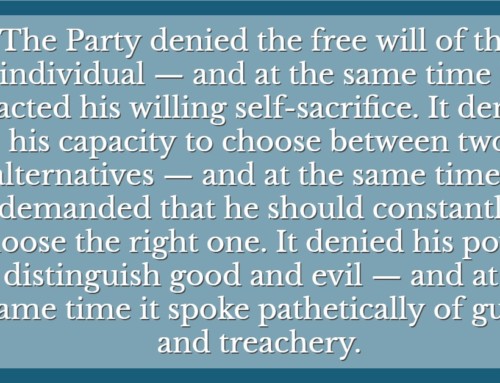THE GILDED DOOR
It sat on a quiet end of Main Street, just a block down from the Shoreline State Bank and the Sunshine Laundry. Within its dark cavern, you could lose yourself in fantasy. It was the place where Tevye first eyed his sons-in-law, where Herbie squirted oil on the bad guy’s shoes, where John Wayne turned Maureen O’Hara over his knee and delivered a good spanking.
Then, when the credits rolled and the lights went up, you were still in another world, gaping at the gilt-edged ceiling medallions and the sparkling chandeliers, at the towering half pillars that bulged from the walls. And even if the place had slipped into a genteel decrepitude, you could still see what the great Gilberto Massanopoli had in mind when he designed it all. It was still a fantasy palace, this place that everyone in Boxford knew as the Gilded Door Theatre.
So imagine the surprise of Boxford’s best piano teacher, Ada Runyon, when she walked by the Gilded Door, her arms loaded down with pinch-pleated draperies fresh from the Sunshine Laundry. She saw the poster of coming attractions. “LIMITED ENGAGEMENT!!!: Xaviera del’Abunda, star of Sky-High Stewardesses!!! Coming soon in Amazons in Hard Hats!!!”
The April-day bliss fell from Ada’s face. Whatever happened to the Planet of the Apes sequel which had been playing all winter? She emerged from the shadow of the marquee. She walked backward as she looked up at the title trumpeting itself there: Yes, it was true. Even worse, Amazons in Hard Hats was no longer COMING SOON! It was here. And so was Miss del’Abunda in that poster, where great mounds of her flesh bobbed, barely restrained in their bindings.
The first person Ada called was her best friend, Ruthalin Feldsted. Ruthalin must have talked to her husband, Erval, who went straight to their Mormon bishop. That was why Bishop Keating walked in on Latham Runyon’s next Sunday School class. He looked like Dr. Bad News, and the class looked up like all the relatives in the waiting room. He rubbed the bare dome of skin on top of his head. He hoisted the belt around his potatoes-and-gravy paunch. “We’ve got a problem,” he told them. Even his wife looked somber, and Jeralee Keating was the cheeriest person on the planet.
Jeralee wore her entire history on her face. You could see her at age thirteen, dressed in gingham, her hair in a ponytail, as she headed out the back door after breakfast to deliver cantaloupe rinds to the cows. Today, tracks of gray shot through her short little bangs. They ran back across her head, caught up in that ponytail. The figure underneath the gingham had gone all pillowy. But she still looked thirteen.
“Why isn’t rating it ‘X’ enough?” asked Jeralee.
“You wonder,” said Ruthalin, “how much worse it can be when they’re calling it ‘Triple X.'”
“There’s a law against that sort of thing!” boomed Erval Feldsted. “Or if there isn’t, there oughta be!”
Other voices declared that “We should run them out,” or “We should attend a meeting!” But how? And what meeting?
Who in their congregation, their little far-flung Boxford Ward, even knew how the town worked? Half the ward had moved here from the deserts of the West, drawn by jobs at the Crayton Poultry Company (Darold Keating), or Tidewater General Hospital (Erval Feldsted), or Boxford State College (Latham Runyon, who now shoved his lesson materials aside and sat on the edge of the table).
These transplants filled the center pews each Sunday. Each man wore a white shirt and a look of bemused fatigue. The women dressed in homesewn frocks. They wielded thick, useful arms as they herded their many well-scrubbed children.
A center-pew family could live in Boxford ten years and still not know a thing about City Hall. Who had the time? Fathers worked all day. In the evenings, they taught Boy Scouts how to tie knots, or they drove about seeking lost members. On the weekends, they fixed whatever was broken in the house, unless they were asked to weed melons at the church farm or attend yet another priesthood meeting, where the men met together for instruction and haranguing about their church duties. Which happened often enough that the list of broken house parts never, ever shrank by much.
The women cooked, sewed, gardened and canned. If that did not take up enough time, they cut out flannel board figures to use in their church lessons. And if that did not take up enough time, they looked for somebody who was sick and needed soup and, if no sick person could be found, then somebody who looked a little tired would do.
What you had was a people who believed in civic duty and voting and all that. But when faced with the ballot, they just didn’t know whether to keep Joe Green as sheriff, or throw him over for Bill Brown.
In the side pews, folks with tattoos, droopy mustaches and faces deeply lined by hard living filled the rows. These folks were the converts. Native to the county, they straggled in every week or two in family fragments. And even though they had lived around here a long time, they had no idea how to fend off a smutty movie house. The dinette waitresses and the union welders usually saw civic life from the wrong end. Take, for example, Sister Kilby. Didn’t her oldest son still have to report to his parole officer? Now, nobody was saying Sister Kilby didn’t have a good heart. But what kind of advice could she offer when the Gilded Door turned its back on Disney movies forever and the Sunday School class wanted to fight back? Yes, fight back! They would all write a letter! They would call the … the …
“Brother Runyon, can you figure out who to call and get back to us?”
Brother Runyon was a history professor. He knew stuff. Maybe he could figure out what to do.
“Yes, Brother Runyon, we cannot let them get away with this!”
But they were getting away with it. That’s the way things were going now. Why just last week, Ada had turned on the TV and there was Woody Allen on Afternoon with Doug Michaels. The two of them chatted over Woody’s new movie and how it shocked people from Tallahassee to Minot. But why worry? they laughed. The people who didn’t like Woody’s movie were rubes that probably enjoyed having their teeth pulled by barbers with big rusty pliers.
The sexual revolution was on the march and those who refused to cheer along its parade route felt … lonely.







Leave A Comment